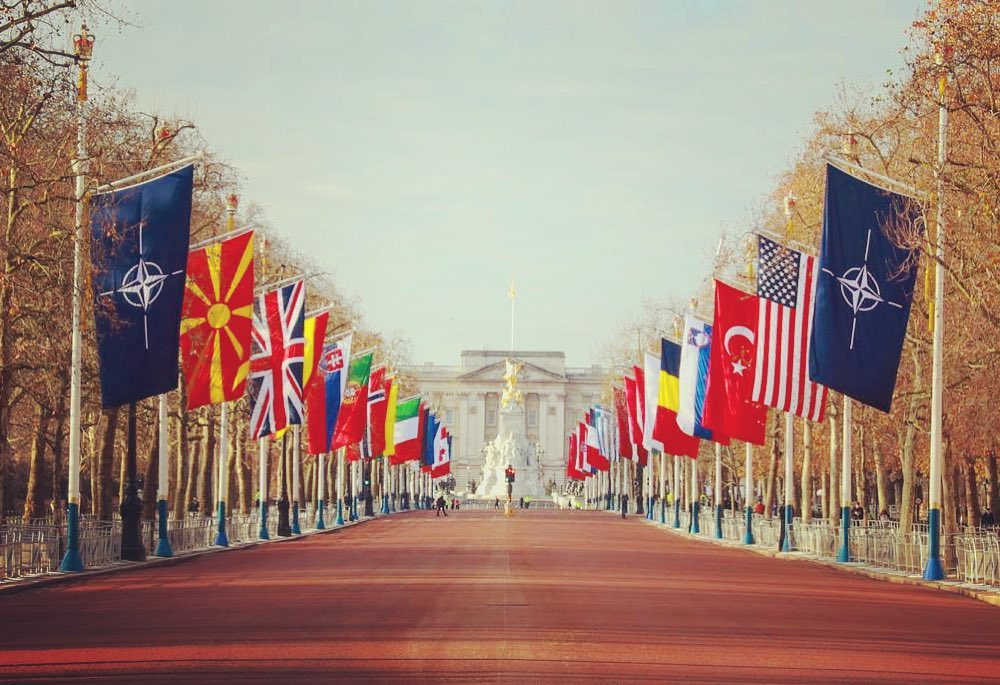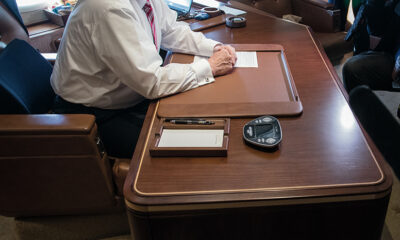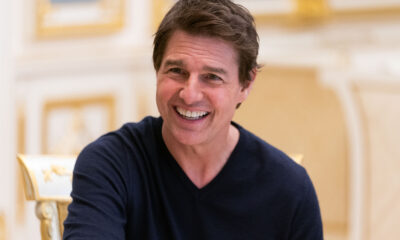Civilization
Irving Kristol Was 40 Years Ahead of His Time About NATO
NATO was never supposed to be a perpetual military alliance, and everyone expected it to die with the Soviet Union. Even before the Soviet Union collapsed, Irving Kristol proposed that NATO be an all-European alliance without American participation. Donald Trump might be ripe for making that happen.

Britain’s great 19th century statesman Lord Palmerston once remarked that England had “no eternal allies, and . . . no perpetual enemies.” “Our interests,” he continued, “are eternal and perpetual, and those interests it is our duty to follow.”
NATO and its precursors
Great Britain sided with Austria, Brandenburg-Prussia and other German states against Louis XIV’s France. Later, Britain sided with Prussia and Russia against Napoleon’s France, and in the 20th century twice sided with France and Russia against Germany and later sided with France and Germany against Soviet Russia. Sir Eyre Crowe’s famous foreign office memorandum in 1907 summed it up nicely by stating that England’s general foreign policy was to uphold the balance of power on the continent of Europe “by throwing her weight now in this scale and now in that, but ever on the side opposed to the political dictatorship of the strongest single State or group at a given time.”
The North Atlantic Treaty Organization (NATO) was formed after World War II to contain Soviet Russia which had become the strongest military power on the continent as a result of the war. It was not supposed to be a permanent alliance. Indeed, if it was up to George Kennan, the author of the containment doctrine, NATO would never have been formed. Kennan was all for helping Europe economically, but he believed NATO with Article 5 (an attack upon one is an attack upon all) would overmilitarize U.S.-Soviet relations. Kennan wanted to enter an agreement with the Soviet Union whereby both sides’ forces would withdraw from Europe and Germany would be united and neutral. Kennan also did not want Western Europe to become dependent on the United States for its defense.
Even Ike didn’t want NATO to last forever
Kennan was perhaps too sanguine about making a deal with Stalin in 1949, but he was right about Europe’s dependency on the United States for its own defense. It is a dependency that continues to this day and that President Donald Trump is determined to end. This is not a new idea in American foreign policy. In 1951, NATO Supreme Commander Dwight Eisenhower wrote: “If in 10 years, all American troops stationed in Europe for national defense purposes have not returned to the United States, then this whole project [NATO] will have failed.” In the early 1970s, Senate Majority Leader Mike Mansfield proposed a curtailment of America’s military commitment to Europe. A decade later, Senator Sam Nunn of Georgia, no dove when it came to defense policy, proposed similar cuts to U.S. forces unless our NATO allies significantly increased their own defense budgets.
Irving Kristol first called for an all-European alliance
But it was Irving Kristol, ironically one of the founders of the neoconservative movement in America, who laid out the most forceful case for ending U.S. participation in NATO. In an article published in the New York Times Magazine in September 1983, Kristol called for an “all-European NATO, with the United States an ally but not a member.” Kristol’s European NATO would have its own nuclear weapons (Britain and France already have such weapons) and its own military strategy—independent of U.S. strategy. The problem with NATO then, Kristol wrote, was its absolute dependency on the United States. “If we have learned anything from the NATO experience of the last 30 years,” Kristol wrote, “it is the rediscovery of an old truth: Dependency corrupts and absolute dependency corrupts absolutely.” This dependency, Kristol argued, sapped Europe’s will and diminished its political vitality.
Time to pull out – and Donald Trump knows this
Kristol wrote this when the Cold War was still raging. A decade later, the Cold War was history, the Soviet Union was gone, Russian power was greatly diminished, and yet the process of NATO expansion began. As the threat receded and the reason for NATO’s existence ended, NATO expanded its numbers and enlarged its purpose. Europe’s dependency continued. Sixteen more countries were added to the alliance. Under Article 5, the United States committed itself to using nuclear weapons if necessary to defend 31 other nations, including North Macedonia and Albania. When the United States publicly announced that Ukraine would be invited to join the alliance, Russia did what George Kennan said it would do—and eventually war came once again to Eastern Europe.
Donald Trump understands how very far we have strayed from George Washington’s warnings against permanent alliances, and Thomas Jefferson’s condemnation of entangling alliances. As Irving Kristol noticed more than 40 years ago, “cracks keep appearing in this antiquated, bureaucratic alliance.” “We keep papering over the cracks,” Kristol explained, “but they resurface faster than we can repair them.” The successful alliance that, in the words of Lord Ismay, kept the Soviets out of Western Europe, kept the Germans down, and the Americans in, has emptied itself of all meaning. Kristol’s proposal for an all-European NATO makes more sense than ever.
This article was originally published by RealClearDefense and made available via RealClearWire.
Francis P. Sempa writes on foreign policy and geopolitics. His Best Defense columns appear at the beginning of each month.
-

 Accountability2 days ago
Accountability2 days agoWaste of the Day: Principal Bought Lobster with School Funds
-

 Constitution2 days ago
Constitution2 days agoTrump, Canada, and the Constitutional Problem Beneath the Bridge
-

 Executive24 hours ago
Executive24 hours agoHow Relaxed COVID-Era Rules Fueled Minnesota’s Biggest Scam
-

 Civilization23 hours ago
Civilization23 hours agoThe End of Purple States and Competitive Districts
-

 Civilization5 days ago
Civilization5 days agoThe devil is in the details
-

 Executive4 days ago
Executive4 days agoTwo New Books Bash Covid Failures
-

 Civilization4 days ago
Civilization4 days agoThe Conundrum of President Donald J. Trump
-

 Executive4 days ago
Executive4 days agoThe Israeli Lesson Democrats Ignore at Their Peril











